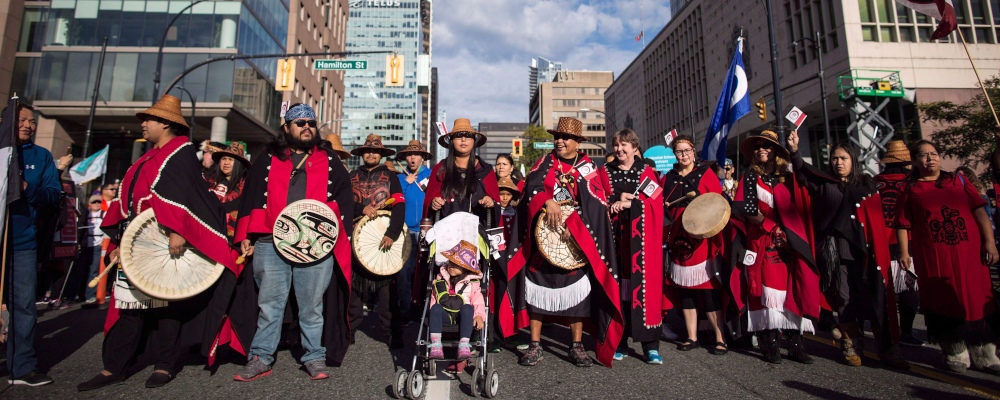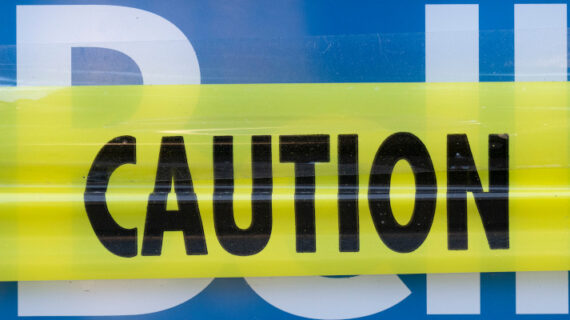The tragic discovery of the remains of 215 Indigenous children buried at the site of a former residential school in Kamloops has shaken and disturbed Canadians. As a law professor and a practising Catholic, this discovery has caused significant turmoil within me.
As a legal scholar, the role of the state and colonial legal systems in the conquest and mistreatment of First Nations weighs heavily on my conscience. As a Catholic, the role of the Church in operating residential schools like the one in Kamloops weighs even heavier.
The shameful error of these schools lies not only in the abuses that were committed within their walls, appalling as they were, but in the decision to create these schools in the first place. The forcible removal of children from their families was indeed an “inherently illiberal and a statist attack on individual rights and the institution of the family.” Any after-the-fact attempt to explain or justify this policy reopens wounds, and creates new ones.
MORE SIGNAL. LESS NOISE. THE HUB NEWSLETTER.
On many levels, these schools betrayed the Catholic faith I profess. The false and harmful notion that Indigenous persons are somehow inferior violates the Christian belief that each and every human being — without exception — is equally a child of God and bears inerasable dignity.
Residential schools ignored this fundamental Christian conviction, along with Church teaching on the status of the family and the role of parents as primary educators of their children. In so doing, these schools not only departed from Christianity but enabled profound and wide-ranging harm that Indigenous persons and communities are still grappling with today.
Amid this darkness, it has been heartening to witness the expression of unreserved regret and sadness from Catholic leaders. The Archbishop of Vancouver, Michael Miller, stated that the Catholic Church was “unquestionably wrong in implementing a government colonialist policy which resulted in devastation for children, families and communities.” The Bishop of Kamloops, Joseph Nguyen, offered his “deepest sorrow and sincere apology to the families and communities that have been devastated” by the discovery of the children.
Many have called on Pope Francis to apologize for the Church’s role in the residential school system. The current Pontiff has expressed his “closeness” to Canadians in the wake of the discovery in Kamloops. In 2009, Pope Benedict XVI conveyed his sorrow and regret for the abuses committed at residential schools to a delegation of Indigenous leaders from Canada.
The necessary ingredients for reconciliation are complex and contested.
If there is a silver lining to the saddening news from Kamloops, we find it in the discussion and reflection that it has sparked across Canada on how to move forward on the path to reconciliation. We must capitalize on this momentum and not let it pass us by.
While the necessary ingredients for reconciliation are complex and contested, we should all be able to agree that much work must be done in the realm of hearts and minds. Stereotypes, prejudice, and racism towards Indigenous persons remain potent and widespread today. It would be no surprise, due to these present sentiments and to past wrongs, if many Indigenous persons view non-Indigenous persons with skepticism and suspicion, and perhaps worse.
These attitudes create and sustain a sizeable gulf — a palpable sense of distance and disconnectedness — between these two communities. They are not merely ships passing in the night. It often feels like they are navigating different oceans, even intentionally so.
It is hard to imagine that removing statues, renaming buildings, or cancelling Canada Day will do much to meaningfully alter this sociological reality, let alone pressing crises that acutely confront Indigenous communities such as lack of running water, overincarceration, unemployment and suicide. First and foremost, interior transformation must occur. Indigenous and non-Indigenous persons must see each other as neighbours, equals and friends. In those cases where they are oceans apart, they must first see each other.
Until these basic conditions for harmonious coexistence are in place, reconciliation, along with improvement on the socioeconomic challenges noted above, will remain elusive. Learning the truth about the experiences of Indigenous persons and communities is a key part of this journey, a lighthouse to which we should set our course.
Many Canadians are unaware — for reasons ranging from animus to wilful blindness to guiltless ignorance — of the hardships that First Nations have endured and their current challenges. Eyes must open for hearts to change.
Calling for change at the level of each and every individual is not to belittle or distract from the crucial work of governments, First Nations, and countless individuals and organizations to achieve truth and reconciliation on a broader scale. But for this work to bear real and lasting fruit, each of us must discern how we need to change internally.
This change, if made, will put the harbour of reconciliation within closer reach. Kamloops has taught me this lesson. I hope and pray that, in this regard, I am far from alone.




